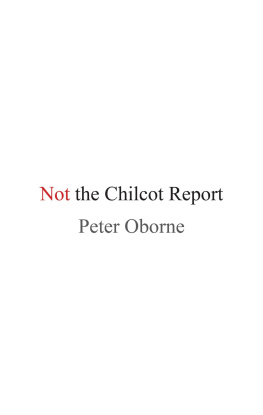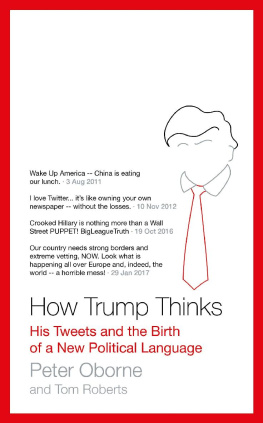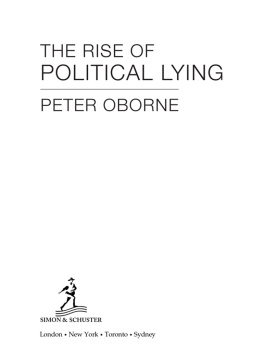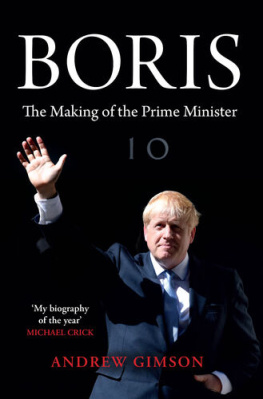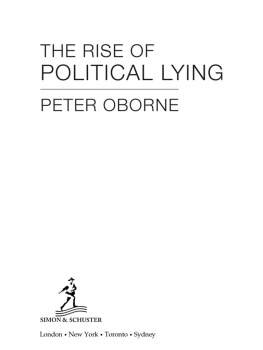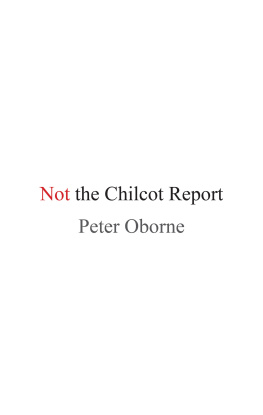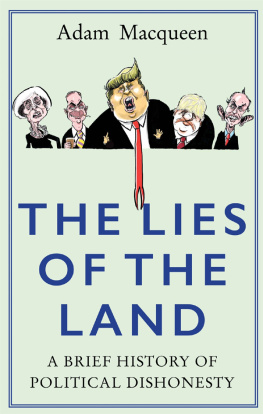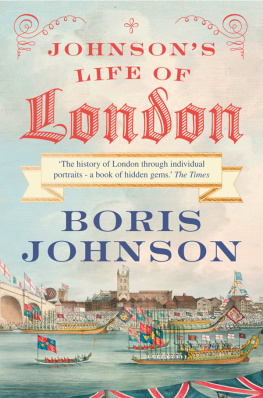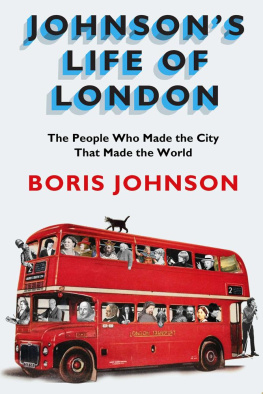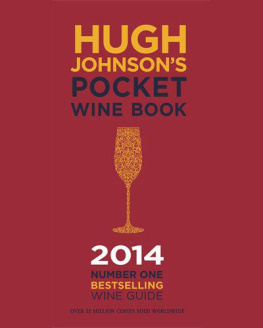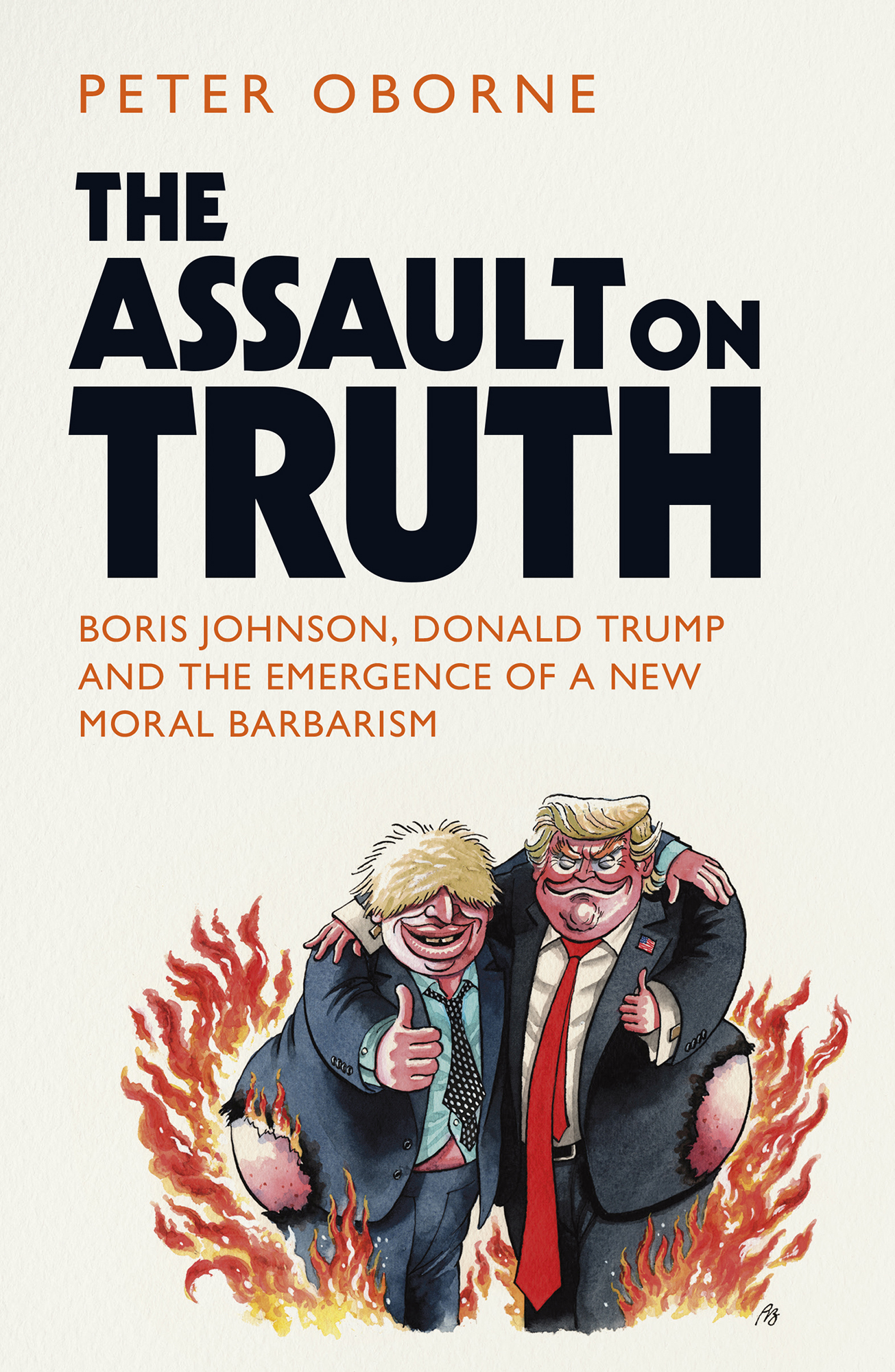Thank you for downloading this Simon & Schuster ebook.
Join our mailing list to get updates on new releases, deals, recommended reads, and more from Simon & Schuster.
CLICK HERE TO SIGN UP
Already a subscriber? Provide your email again so we can register this ebook and send you more of what you like to read. You will continue to receive exclusive offers in your inbox.
Oh, what a tangled web we weave, when first we practise to deceive!
Walter Scott
Chapter One A N I NTRODUCTION TO P OLITICAL L YING
It is of paramount importance that Ministers give accurate and truthful information to Parliament, correcting any inadvertent error at the earliest opportunity. Ministers who knowingly mislead Parliament will be expected to offer their resignation to the Prime Minister.
M INISTERIAL C ODE
Youre looking to hire a new member of staff. A candidate presents himself. He is charming, intelligent, amusing, well connected, with glowing references. But a check throws up uncomfortable facts. He was sacked from his first job after university for lying. He was sacked again, after a similar episode, later on in his career. Close inspection reveals that he has a history of deception, misrepresentation, false statements and serial fabrication.
Youd probably be more likely to call the police than hire this individual. And yet, on 12 December 2019, the British people elected Boris Johnson as prime minister.
In the first two chapters of this book I explain how this happened. This involves two tasks. The first is simple. I will use a mass of irrefutable evidence to prove that Johnson (and regrettably his most senior advisers and ministers as well) habitually lie, fabricate and misrepresent the facts. Such a weight of material is also a burden. Publishing it all would make this book too long. So I wont expose every lie.
I will then examine Johnsons methodology of deception. This means presenting some of the most vivid, shocking and powerful examples.
The second task is more complicated, but also more interesting. What led the British people to put a liar into Downing Street? And what made the Conservative Party, which has played such a famous role in British history, install him as leader?
The superficial answer is that he was lucky in his opponents, first in the Conservative leadership election and even more so in the general election of 2019. But for a full answer we need to look beyond Westminster and electoral politics.
Its not long since Britain was famed for both public and private probity. Liars were shunned, in private and public life. Under Boris Johnson political deceit has become not just commonplace but automatic. His election as prime minister suggests that British people no longer care about the difference between fact and fiction, or truth and falsehood. What kind of a society have we become?
Its unimaginable that a compulsive liar such as Johnson could have been chosen to lead the Conservative Party in a previous era, let alone elected prime minister. There was a time, before the emergence of political parties as we know them today, when it was normal for ministers to lie, cheat and bribe. In the eighteenth century, many of Britains most famous writers and journalists were paid by the government to apply their literary skills to undermine opponents. Meanwhile ministers made huge sums from corruption, vindicating Ambrose Bierces famous description of politics as the conduct of public affairs for private advantage. Ministers did not want voters (or rival politicians) to know how government money was being spent. So there was limited accountability and often zero integrity in public administration.
In Chapter Three I will show how morality changed in public life. Our Victorian ancestors, many inspired by evangelical Christianity, erected a series of protections against deceit and corruption. It is fashionable to mock them today, but the Victorians brought high ideals into government which changed the way that Britain was ruled. They introduced accountability and integrity, in the process creating the modern British state.
The Victorian system, based on the rule of law and an honest, impartial civil service, lasted throughout the twentieth century. It made the great majority of Britons believe in the basic good faith of their governments, and therefore to accept the sacrifices necessary to fight two world wars. During this century lying to Parliament, or being caught out lying to Parliament, was one of the most serious sins any British politician could commit.
Ministers, human nature being what it is, continued to lie and cheat. But their misdemeanours were individual, not structural. Once caught out they were shamed and their careers destroyed. That explains why in twentieth-century Britain, political deception was typically committed by rogue individuals acting without the knowledge (and against the doctrines) of the institutions they served.
The first serious threat to this system came with the election of New Labour in 1997. Tony Blair and his ministers made a logical (and in some ways understandable) error.
The left has a tendency to believe that it is uniquely virtuous, and that this special virtue gives it a privileged relationship with the truth. In particular left-wing movements feel that in a venal world filled with vicious, unscrupulous right-wing enemies they are licensed to use falsehood to secure their political ends. That was especially true in the 1930s, when left-wingers were understandably desperate to stop fascism and Nazism. They manufactured any kind of propaganda which might achieve this and win them adherents and allies. The Comintern agent Willi Mnzenberg (later an influence on Dominic Cummings) was a master of manufacturing this kind of propaganda, in which realities were selected, distorted or suppressed altogether, and more favourable facts were invented.
This attitude survived in the left in the post-war world. The truth was important to them only insofar as it confirmed their view of the world or the needs of some particular progressive cause. It was especially on show in the protests of the Vietnam War, when the need to turn people against the war led the left to mythologise the Viet Cong and the Communist tyrant Ho Chi Minh.
Tony Blairs government was by no means alone in believing that it was allowed an exemption from the constraints of truth telling. But this belief led directly to calamity when New Labour peddled lies about Saddam Husseins weapons of mass destruction in order to make the case for war against Iraq.
Blairs three immediate successors as prime minister Gordon Brown, David Cameron and Theresa May were capable of being devious. But this made them part of the pattern of worldly twentieth-century prime ministers like Harold Wilson and John Major. They were not habitual liars, and all three were driven (like Wilson and Major before them) by a sense of public duty and integrity.
Standards of truth telling, I will prove, collapsed at the precise moment Boris Johnson and his associates entered 10 Downing Street in the early afternoon of 24 July 2019. Before this moment, those engaged in public life could join in the national conversation regardless of what political tradition they hailed from or which party they supported. Afterwards they couldnt.
This is because, before July 2019, however strongly they disagreed with one another, there was a common standard of factual accuracy on which people of goodwill could agree. No longer. Truth for nearly two centuries a powerful though sometimes muddy river running through the public domain has been captured by the government and turned into a political weapon.


